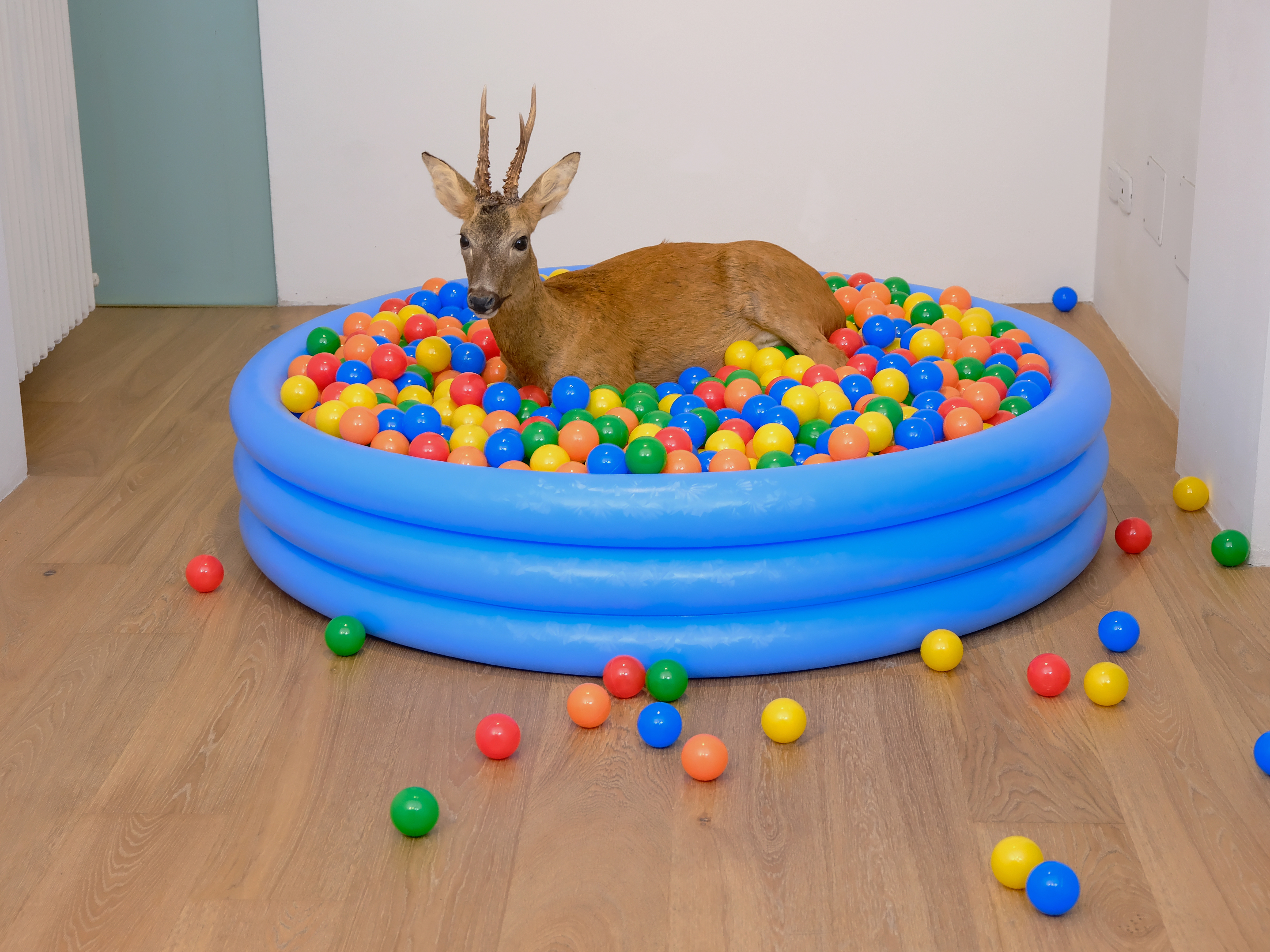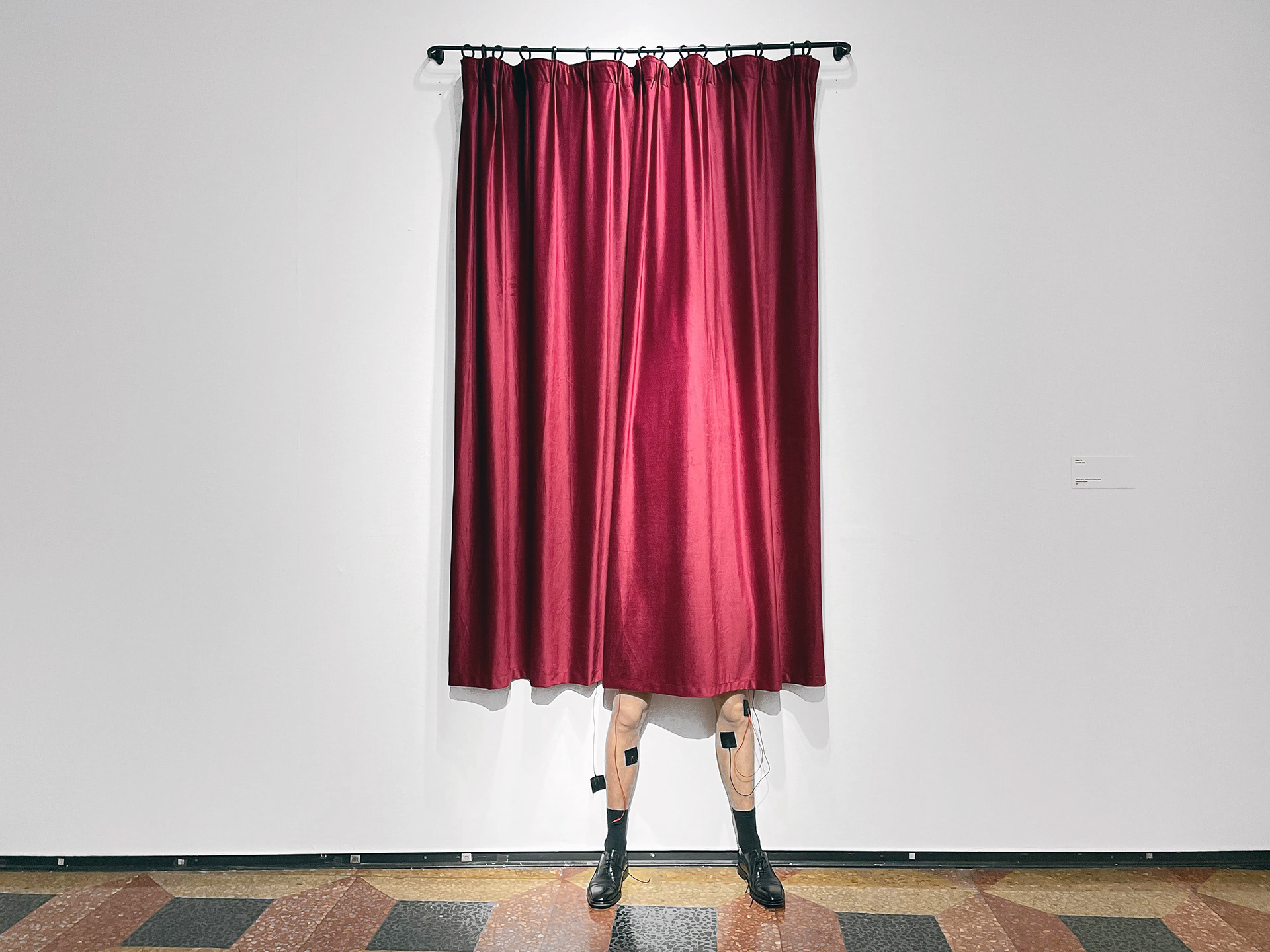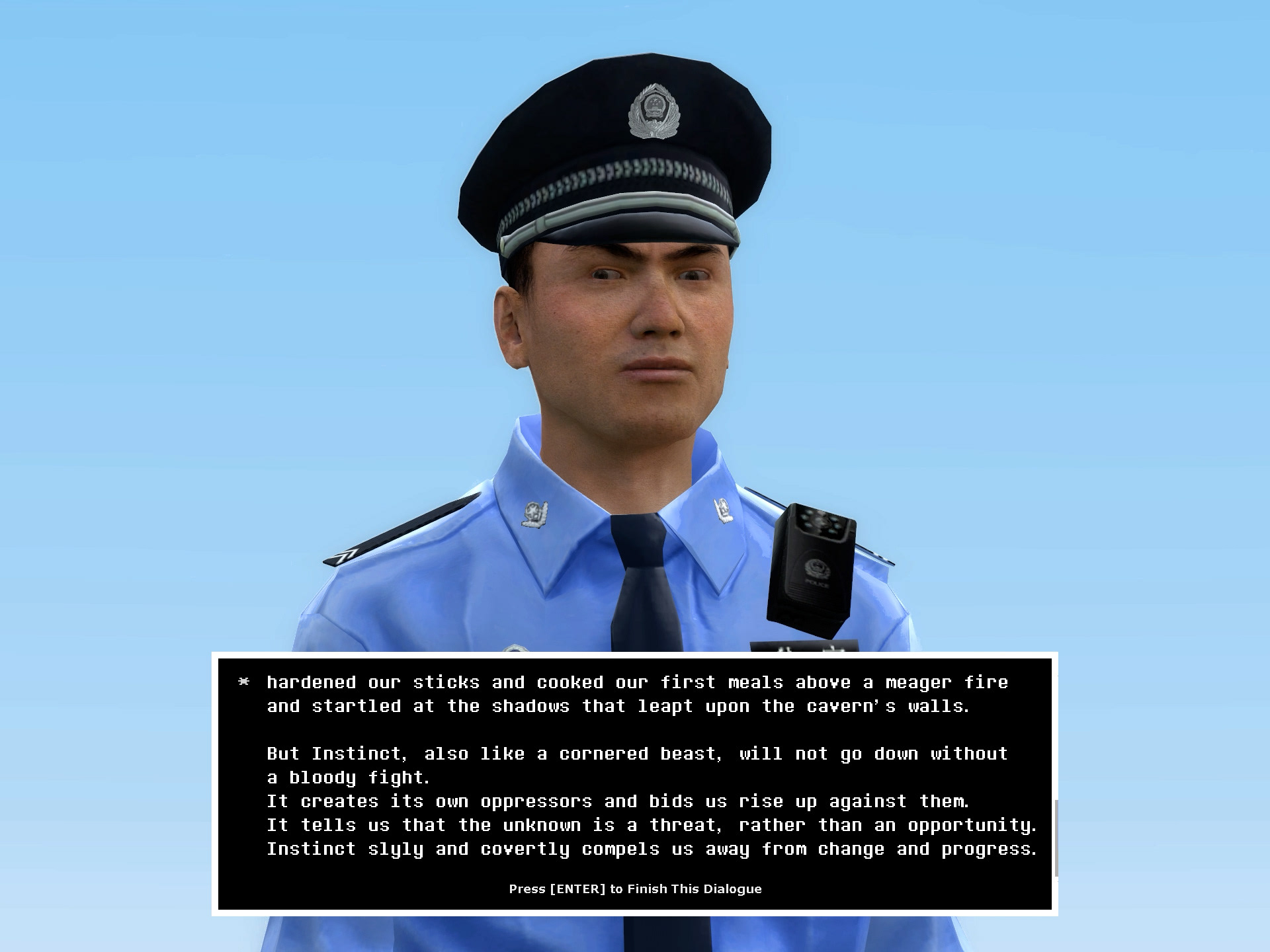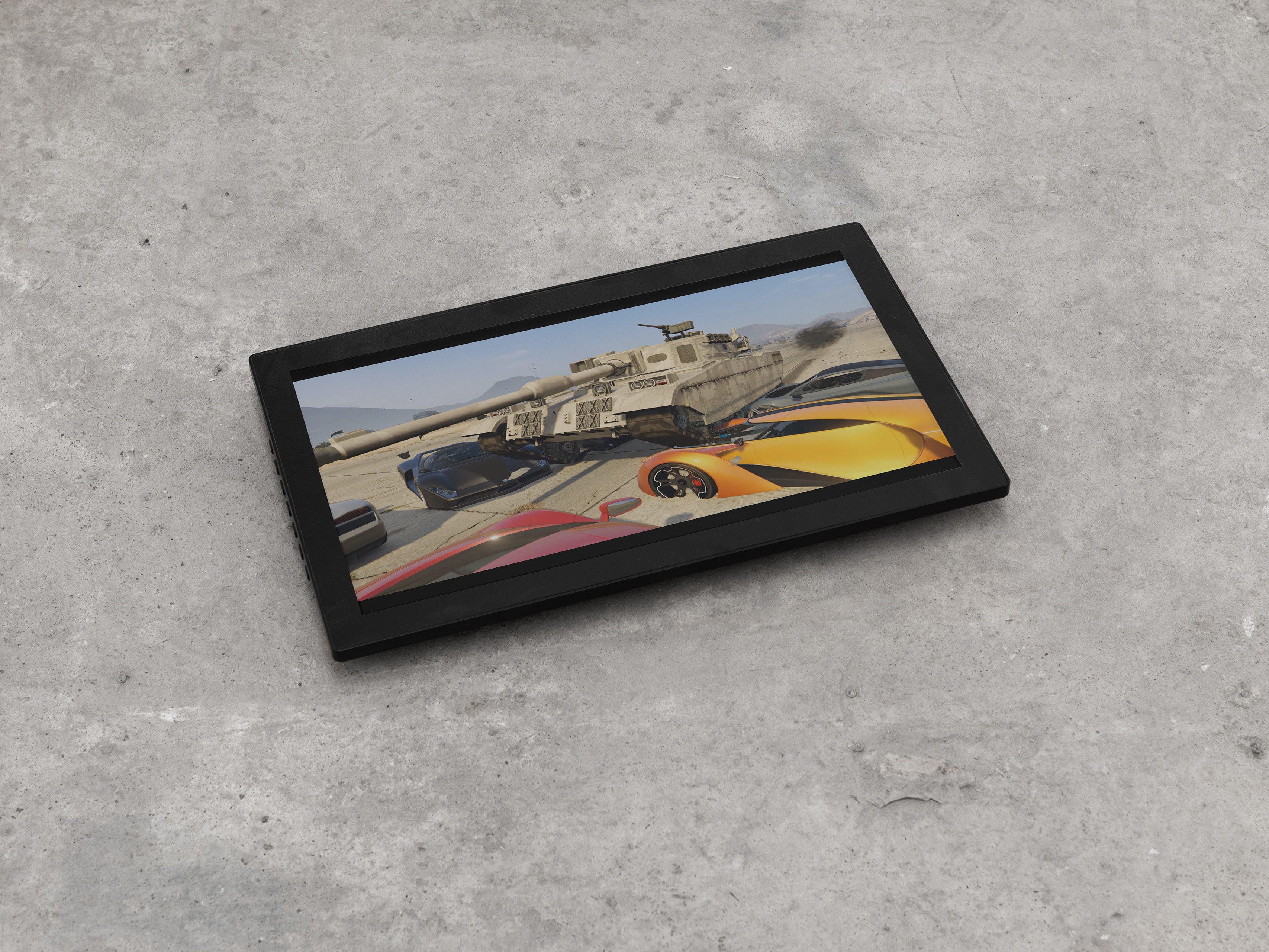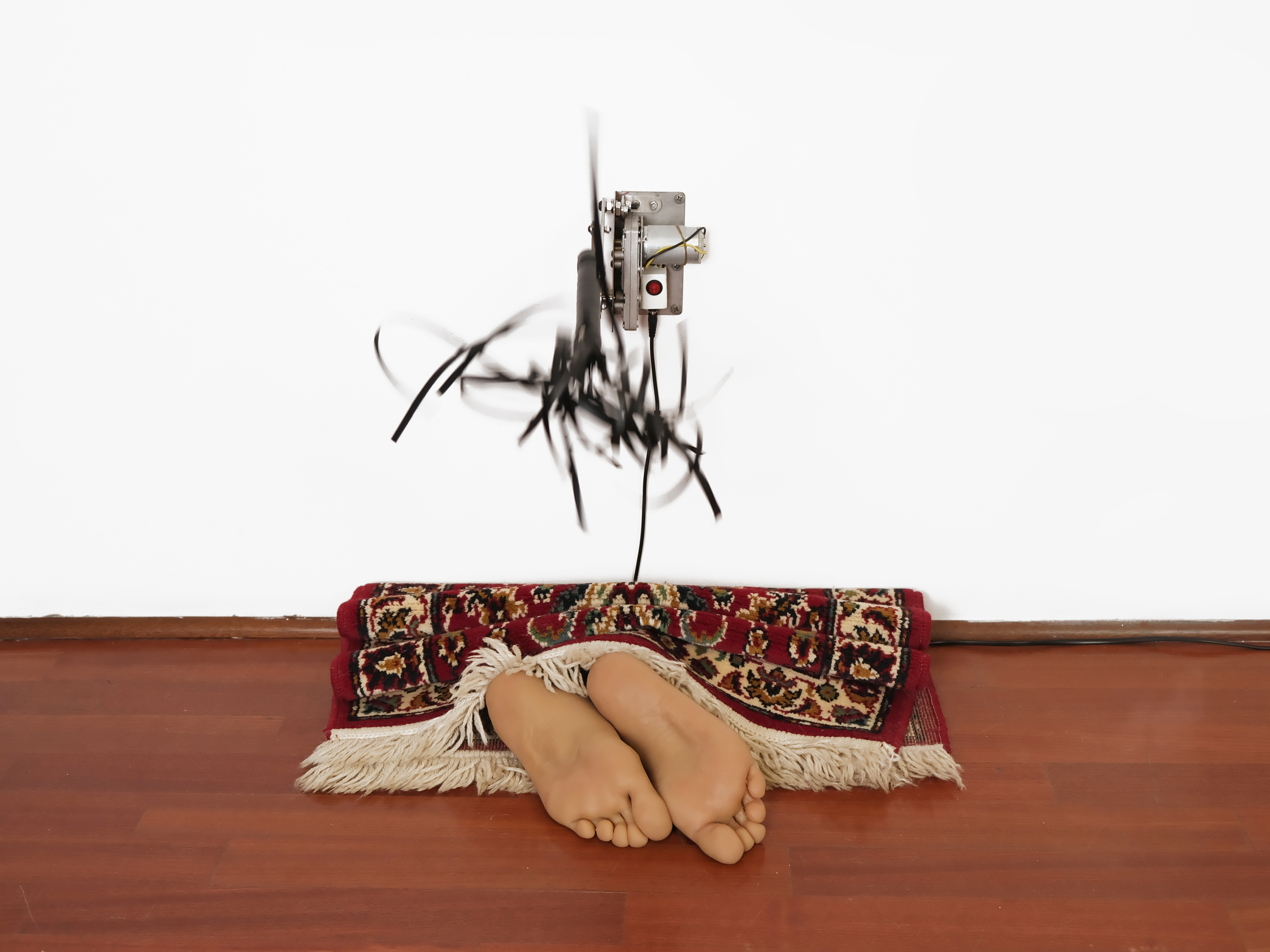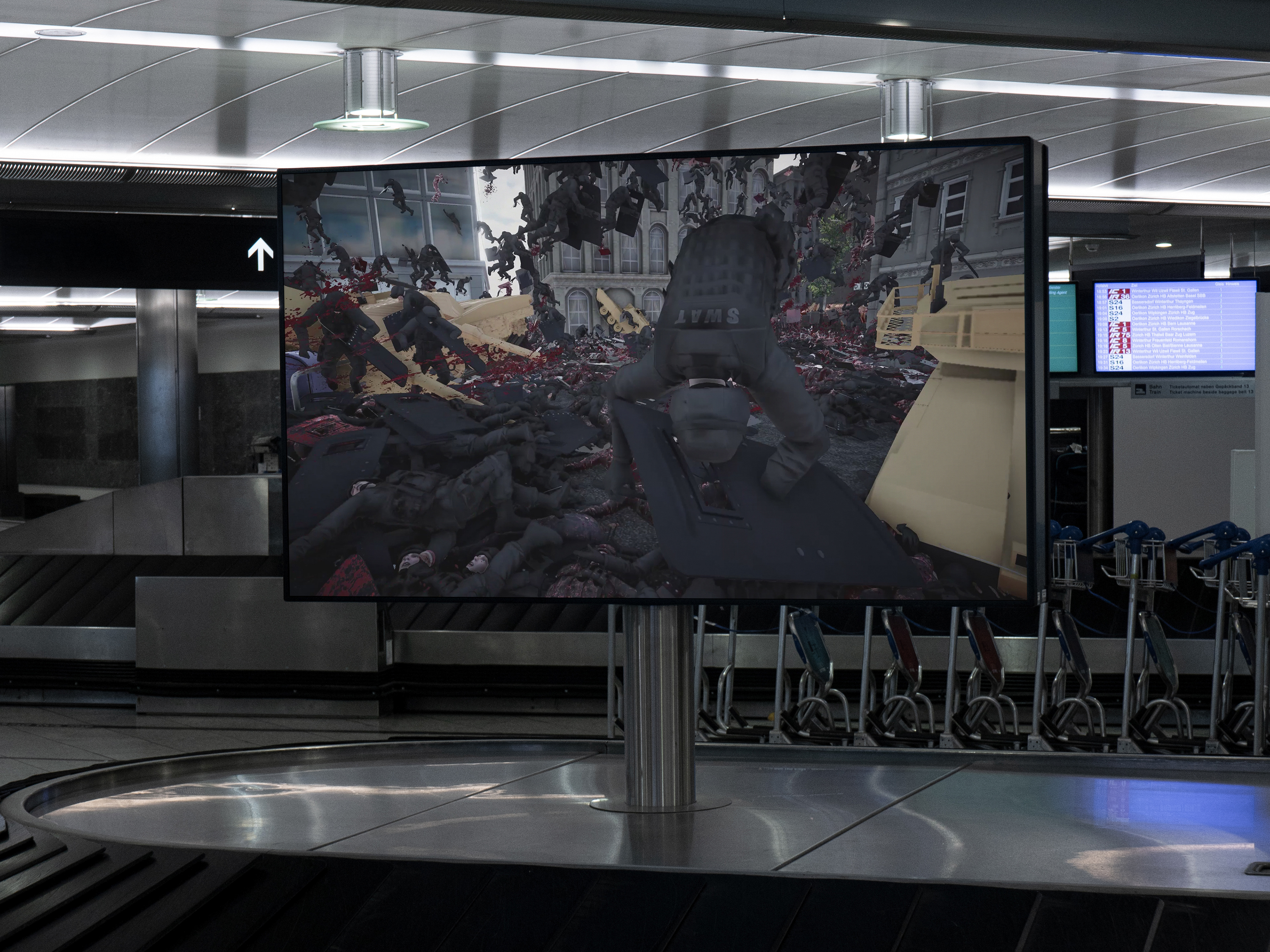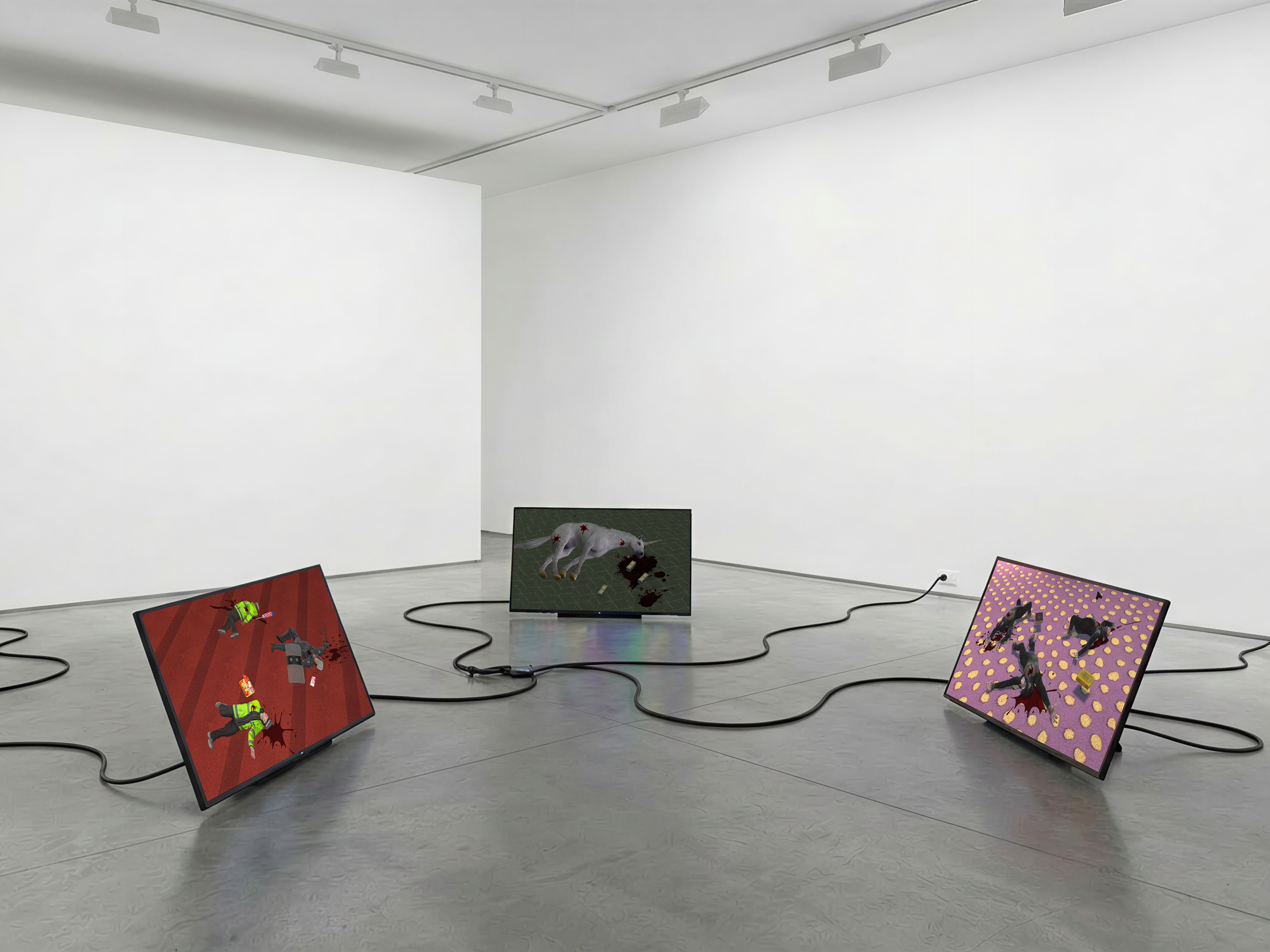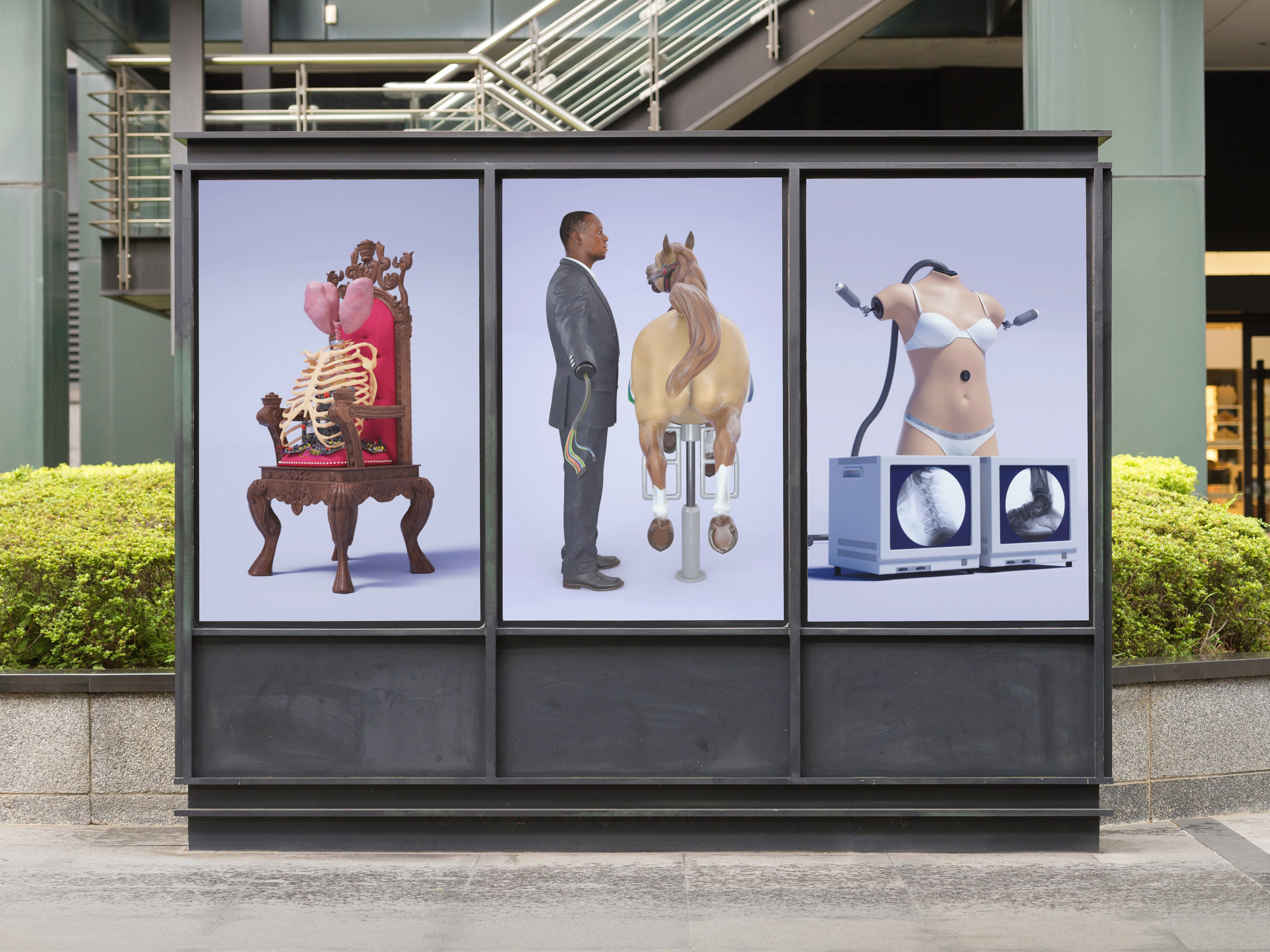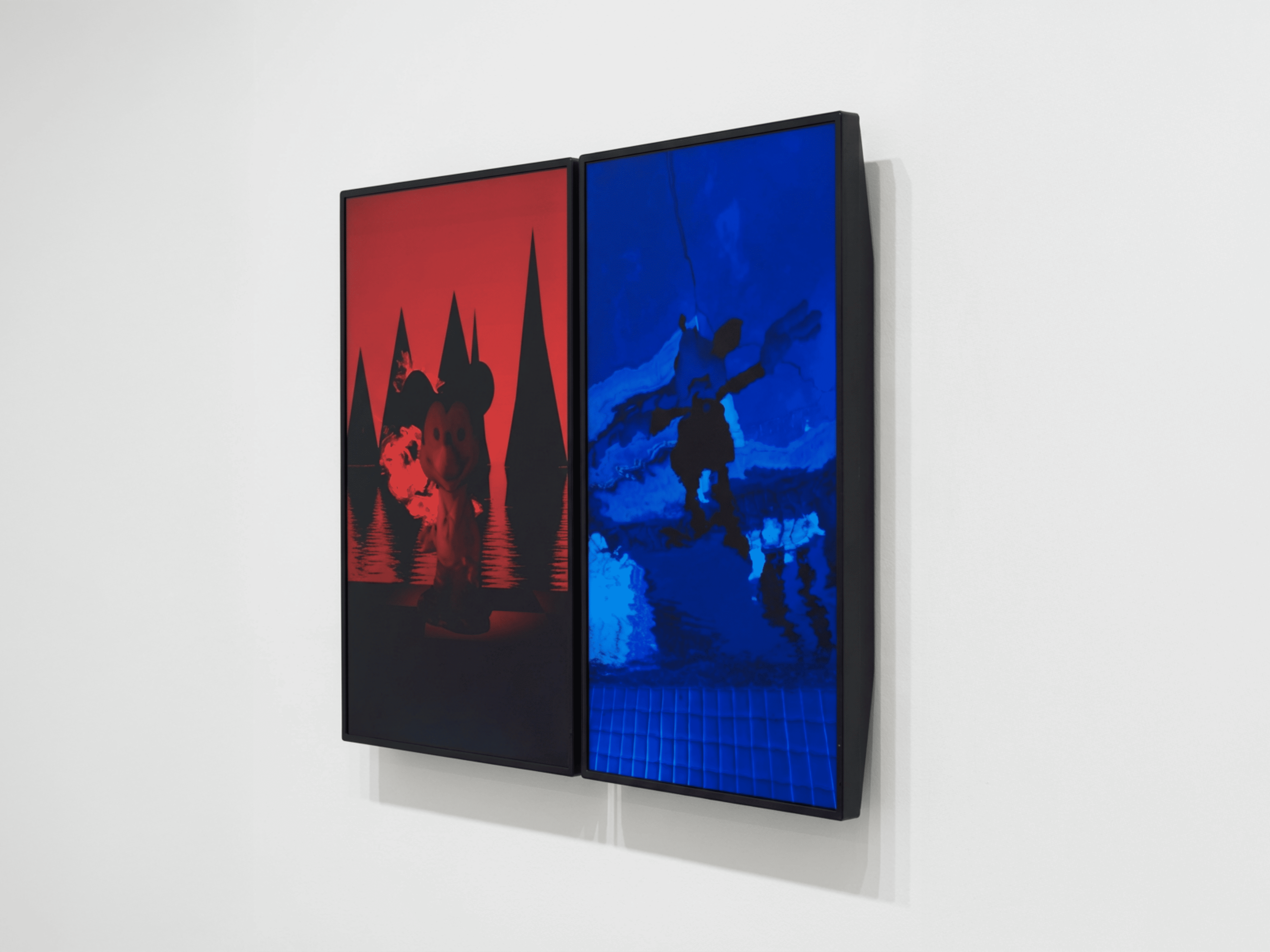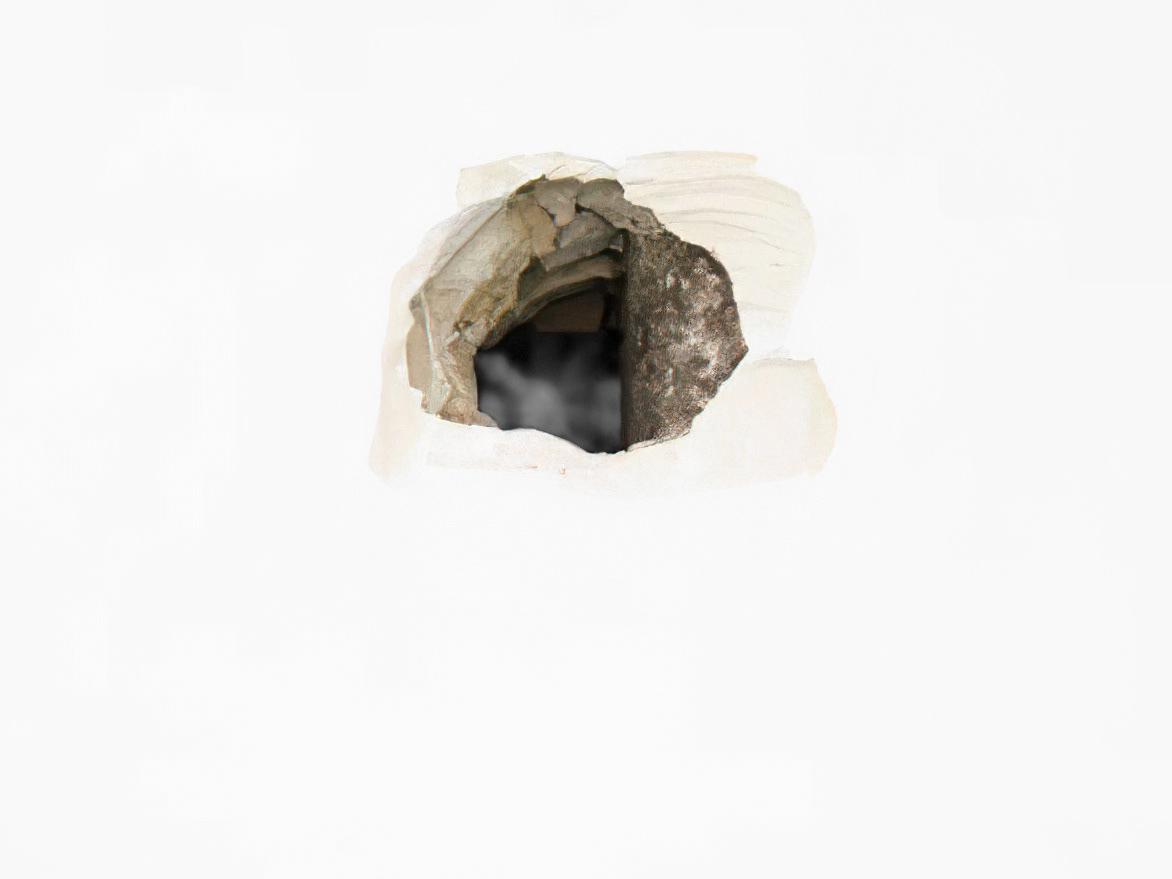Within this peculiar Playground, Yú leaves clues so that the attentive viewer, while emerging in a festive and childish experience, can intuit another world - that of adults - disturbing and violent. The generation after the 95 'was one of the last to grow up during the one-child policy that existed in China until a few years ago. Yú visually elaborates on a conception and a childhood experience difficult to convey to those who, like most of us, associate childhood with a carefree and light period. Yú witnesses a childhood conceived from above, in the function of a social and political idea and therefore, in fact, denied as an intimate experience to be built individually, construct a neutral place, almost inexpressive as regards colors and rhythm; its visual "cleanliness", reinforced by the monochrome sculptures, accentuates, even more, the mystification that lies behind the familiar but illusory concept of childishness.
The children protagonists of Playground are monochrome, shiny, neutral sculptures surrounded by pieces of weapons; they hold bombs in their hands with frightening tranquility that is intrinsically part of the archetype of the child. War thus becomes part of childhood and dark normality that upsets and alters; the landscapes change definitively so that the garden under the house with swings and slides is filled with war remnants.
Yú visually elaborates on a conception and a childhood experience that is difficult to convey to those who, like most of us, associate childhood with a carefree and light lapse of time. The contrast is therefore striking between the iniquity of war that steals happiness and moments from children's faces. Perhaps even the adult becomes a child when he embarks on the path of war; unlike the child, however, he does not have his innocence, even if, at times, he shows the same lightheartedness.
